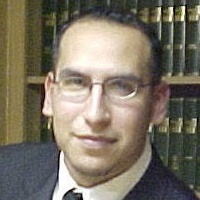Moore Juvenile Law Lawyer, Texas
Sponsored Law Firm
-
 x
x

Click For More Info:
-
Law Office of Robert R. Jones III
2411 Emancipation Ave, Suite 202, Houston, TX 77004» view mapCriminal Defense Expert Representation for Reasonable Rates
If you need representation, call me 24/7.
800-883-8760
Sam H. Lock
✓ VERIFIEDCriminal, Juvenile Law, White Collar Crime, Federal Trial Practice, DUI-DWI
San Antonio Criminal Defense Attorney | Bexar County DWI Lawyer
Mr. Lock began his career in civil litigation and then opened the doors of The Law Office of Sam H. Lock in 2000. For more than 10 years, he has been ... (more)
Law Offices of Jesus R Lopez
✓ VERIFIEDCriminal, Divorce & Family Law, Wills & Probate, Adoption, Juvenile Law
Originally from Del Rio, Texas, Jesus is fluent in both Spanish and English. With an undergraduate degree in Economics and International Business from... (more)
Sylvia Anna Rodriguez
Juvenile Law, Public Schools, Family Law, Criminal
Status: In Good Standing Licensed: 27 Years
James Anthony Sindon
Juvenile Law, Family Law, Criminal, Business & Trade
Status: In Good Standing Licensed: 48 Years
Elizabeth Martinez
Juvenile Law, Family Law, Criminal, Personal Injury
Status: In Good Standing Licensed: 24 Years
Stephanie Renise Dun Brown
Public Schools, Juvenile Law, Criminal, Administrative Law
Status: In Good Standing Licensed: 23 Years
Gregory Leon Wilson
Family Law, Juvenile Law, Criminal, Administrative Law
Status: In Good Standing Licensed: 15 Years
 Robert Jones San Antonio, TX
Robert Jones San Antonio, TX AboutLaw Office of Robert R. Jones III
AboutLaw Office of Robert R. Jones III Practice AreasSpecializations
Practice AreasSpecializations


